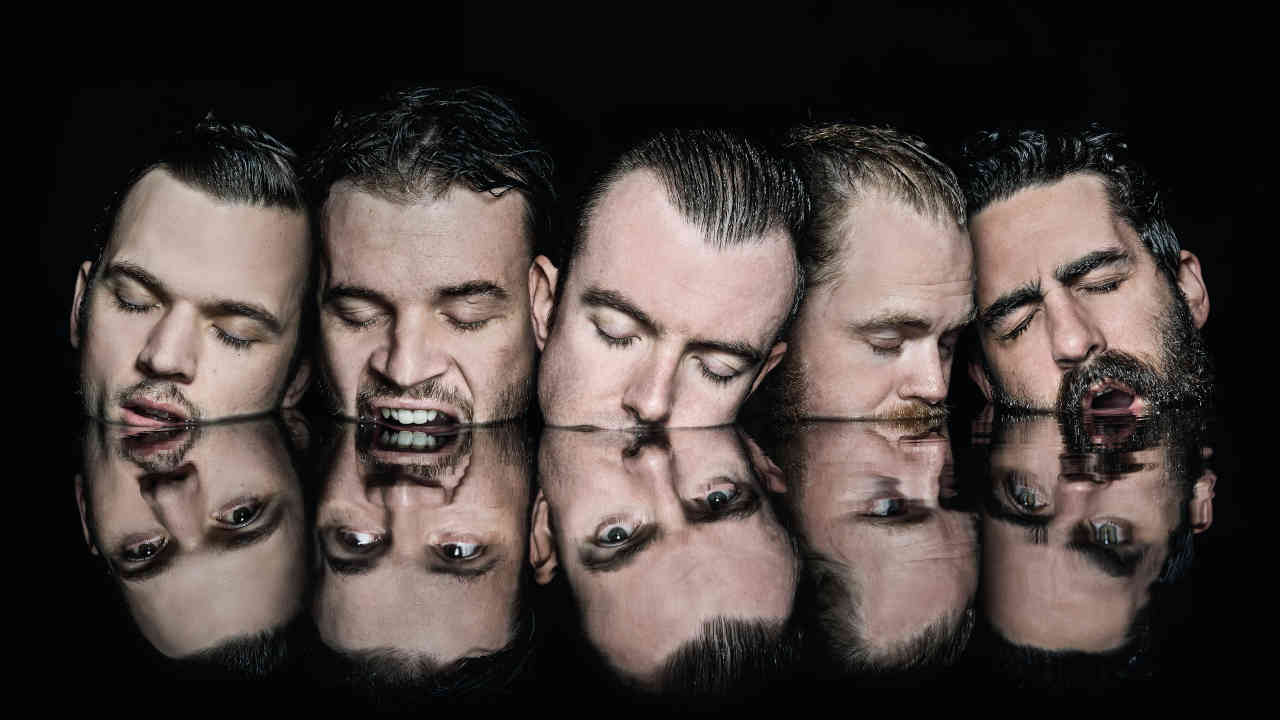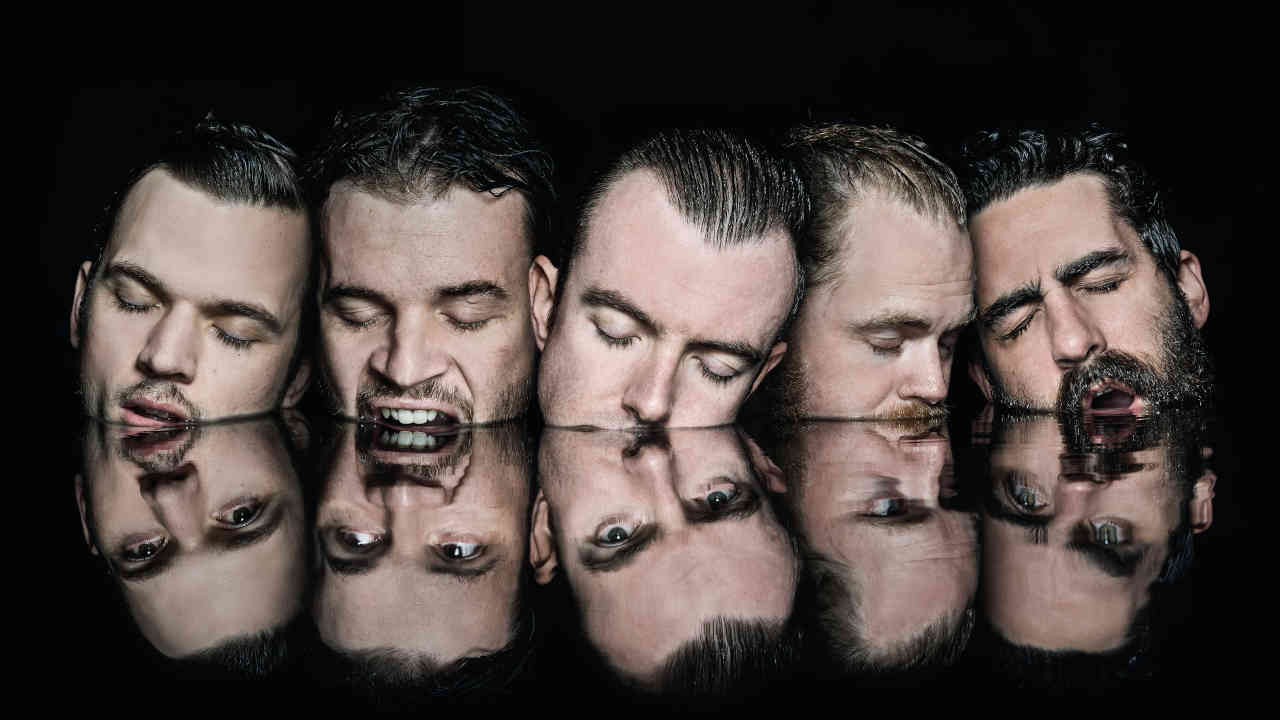
Cult Australian prog metal outfit Karnivool have been announced as the headliners for 2025’s Arctangent festival – though it’s been over a decade since they last released a record, 2013’s Asymmetry. Back then, Metal Hammer met up with the band on the road in Switzerland to look back on their remarkable rise.
“The locals believe that there is this particular black rock underneath most of the countryside out there and that it has these very strange and magical healing properties to it. It’s a very trippy place…”
Ian Kenny is describing the idyllic beachside town of Byron Bay on the most western tip of New South Wales in Australia. Named by Captain Cook in 1770, Byron Bay more recently saw the gestation and birth of Asymmetry, the stunning new album from Ian’s masterful and heavy prog five-piece, Karnivool, who recorded their third full-length in a studio just a mile inland from the area’s golden sands and crashing azure-blue surf.
“Dude, it’s such a beautiful place,” he enthuses mid-tour on a day off in Switzerland. “It’s a truly bizarre part of Australia. It’s a magnet for the left- sided thinkers, the wanderers, the hippies. It’s really picturesque, it has great surf, a beautiful coastline, and it’s totally bohemian. And there are beautiful women everywhere.”
It it sounds like hell.
“Yeah,” he grins. “It is. Total nightmare.”
The image of a potent black seam of rock lying unseen just beneath the surface of paradise is a powerful one and seems an appropriate symbol for Karnivool’s latest opus. In an era when the word ‘epic’ is overused and much-abused it can be said with some authority that it is a work that is epic in every sense. Recorded with producer Nick DiDia, who has previously produced the likes of Rage Against The Machine, Pearl Jam and Bruce Springsteen, it is dense and complex with many moods and shades.
Here prog, post-rock, ambient and juddering metal coalesce to create a thunderous album. Like exploring a deep network of dark caves, return visits to Asymmetry continually reveal new hidden depths and subterranean spaces, each with their own unique sonic architecture. This clearly was not an album jammed out, tossed off and laid down in a hasty week in some garage somewhere.
“The subterranean metaphor totally works,” says the singer, chatting to Hammer midway through the band’s latest European tour, “because this is music that explores the unknown and is always turning a corner. You can get lost in it. I see Karnivool albums being more like books than traditional records. They are almost like those ‘choose your adventure’ novels. We’re very careful about how the music flows and how we present each songs as a collective whole. Our music reads like a novel but plays like a record. We design them to lure you in, pull you in one direction, pick you up and then slap in the side of your head. We’re about constant movement.”
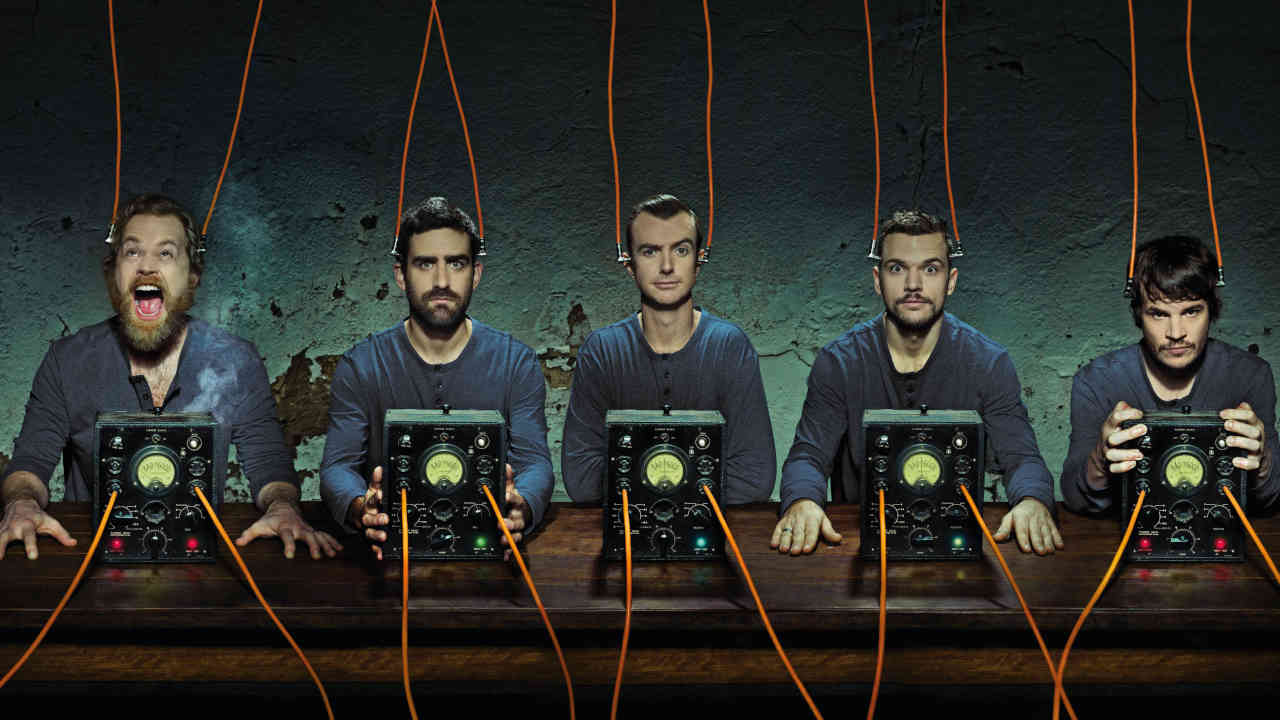
There are certain corners of London – or indeed Paris or Amsterdam or Berlin – where, for one night only, the neighbourhood seems to be overtaken by Australians. But unlike when the Test Match is on in the capital they do not arrive clutching cool-boxes of VB and sun-block sticks. Quite the opposite, in fact. These are the Australians who prefer to dwell in the shadows, who get off not on the thwack of a leather ball on a linseed-soaked willow but deftly delivered musical tension, progressive arrangements and the dark drama that pervades when the Karnivool rolls into town.
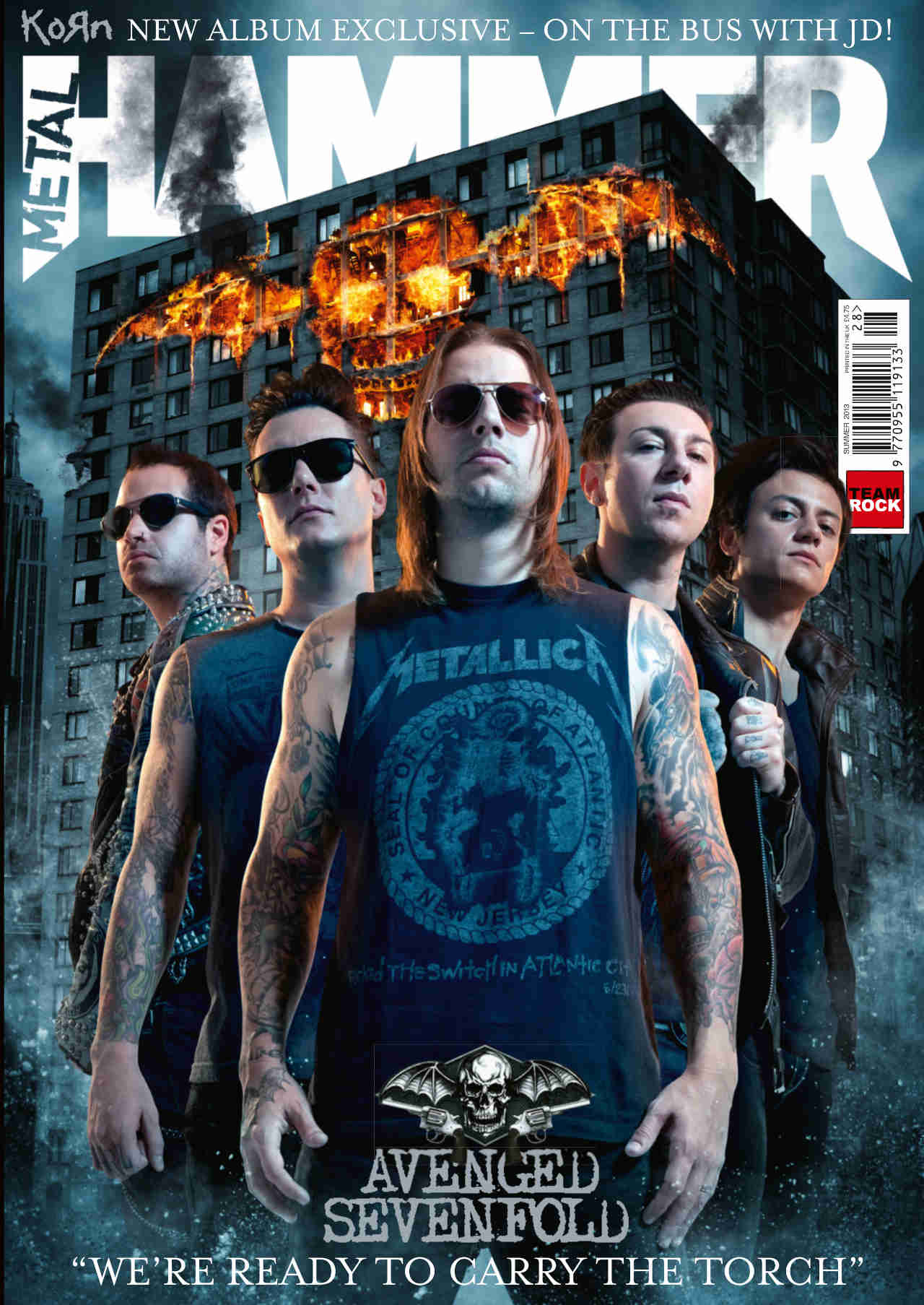
“Wherever we go, our fans share common traits,” says guitarist Andrew ‘Drew’ Goddard. “There are certain consistencies amongst them. They’re all supremely passionate and they’re deep thinkers. They’re not – how can I put it? – they’re not regular people. They’re quite nerdy and they don’t necessarily fit into a certain demographic. But they’re all people we seem to be able to get along with too, regardless of where they’re from. Because they’re quite like us, I reckon.”
As their recent Download appearance and UK shows demonstrated, Karnivool might be huge at home and amongst the Aussie overseas diaspora but their fans are widespread and of all different nationalities, too. Upon its release, their 2005 debut album, Themeta, sold 32,000 copies independently back home, but it was their acclaimed 2009 follow-up, Sound Awake, that charted at number two in Australia and has now sold in excess of 200,000 copies worldwide. Booked to play a debut headline show in Mumbai, India in 2011 – where similarly progressive bands like Dream Theater and Porcupine Tree have unexpectedly large followings – the five-piece were staggered to find 9,000 Indian fans singing their songs right back at them.
“That was insane,” says Drew. “And totally unexpected, too. It was only afterwards when we went back to the hotel, sunk a couple of Kingfisher beers and watched the footage back that we looked at each other and went, ’Wait – did that actually just happen?’”
With Australia being such a massive and barely populated country whose scale is difficult to appreciate here in pokey little Britain – “It used to be really expensive just to get out of Perth,” laughs Drew – the early days of Karnivool saw the band playing on a local level initially before progressing to playing some of the more remote backwaters. Formed in 1997, it took eight years before they finally started getting recognition.
“We once did a small show in a country town called Kununurra in the far north of Western Australia,” the guitarist remembers. “I had actually lived there as a kid so was keen to do it, but before this one gig I suffered a punctured lung which meant I couldn’t fly, so I took the bus instead. It took me 60 hours to get there – and that was without even leaving the state once. I played the 45-minute show then got the Greyhound bus straight back, another 60 hours. So that was five days of continuous travelling through the Outback. That’s Australia for you. There are still a lot of bands who make their living playing just rural Australia, too. Pack up a PA and a couple of fishing rods and away you go…”
“After that, coming to Britain spins us out,” says Ian Kenny. “The fact that accents can change within just a few short miles is still hard for us to get our heads around.”
Today finds the bandmembers putting their feet up on a day off at the Greenfield Festival in Interlaken, Switzerland. Tomorrow they play an early evening slot on a main stage bill that is being headlined by Slayer and The Prodigy but right now they’re taking in the beautiful sweeping views of the Alpine foothills surrounding the area. Last night they played a support show with Stone Sour to thousands of people in Bologna, Italy. Where others bands may be showing road fatigue, Karnivool are in high spirits, safe in the knowledge that they’ve just delivered an album that looks set to only make them a bigger international prospect.
With Mark Hosking (guitars), Jon Stockman (bass) and Steve Judd (drums) joining Ian and Drew it has been a long journey – both literally and metaphorically – to get to here. Karnivool’s history is complicated and involved, with members coming and going – and that’s without mentioning Ian’s other band, Birds Of Tokyo: the anthemic alternative rockers whose recent album March Fires went to number one in Australia, putting him in the odd position of having a side-project that’s bigger than his day job. Guitarist Drew, meanwhile, plays drums in a Nirvana tribute band called Nirvanarama. “I get to live out my childhood fantasies pretending to be Dave Grohl,” he laughs.
Either way it’s a journey, they say, that has not been without its trials and tribulations.
“We only really got a break when we got lucky with some supports when we paired up with Sepultura, Fear Factory and Strapping Young Lad – really heavy bands,” says Drew. “Back then there were a lot of ‘real metal’ bands around Perth at the time who would have killed for those supports and you know what true metal crowds can be like – pretty, um, passionate. We were a bit different to everyone else so there was a lot of ‘Man, this band shouldn’t be on this bill.’ Playing those shows was really tough. I still remember the feeling in my gut before we went on: let’s get this over with. But it’s par for the course for any up and coming bands. Those early years made us what we are today.”
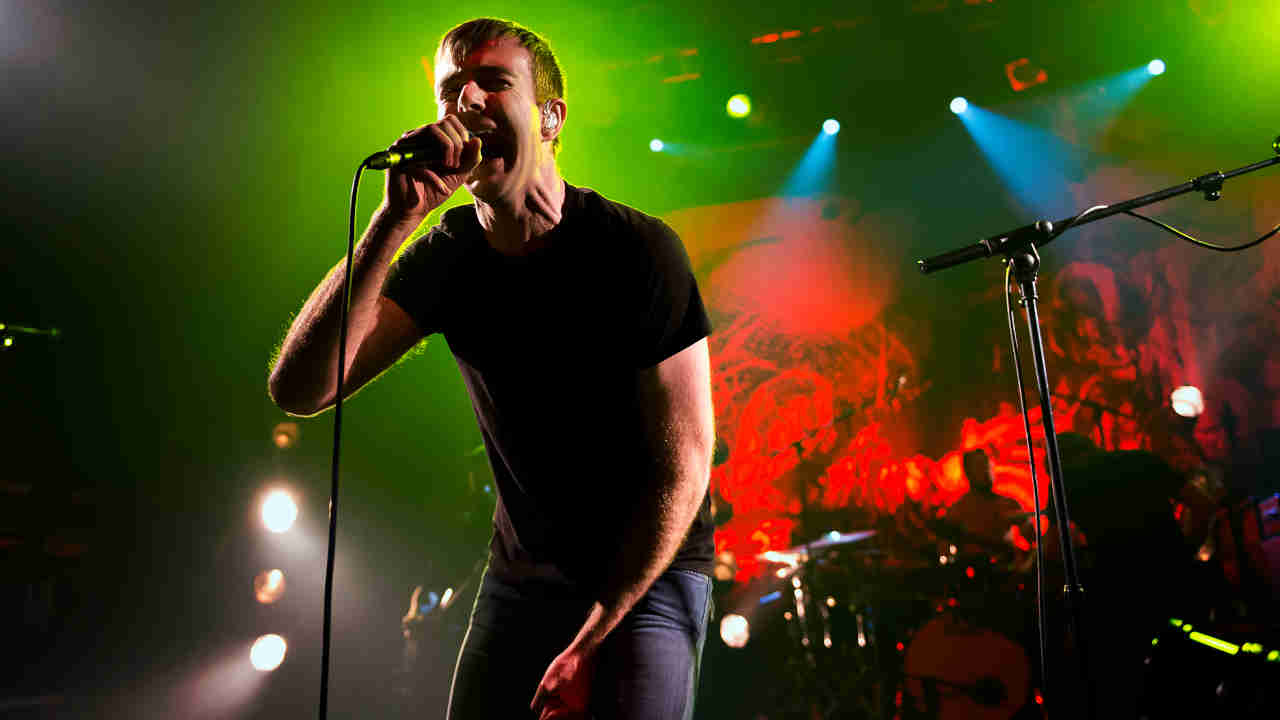
Career highlights are still coming: storming India, playing to 1,500 people in Budapest the other night on their first ever show in Hungary, huge UK festivals.
“This is definitely a slow-burner of a record,” says Drew. “So while all these shows have been great we want to keep pushing onwards. We want to reach as many new places as we can, whether that’s Download or hitting all those backwater towns that I mentioned, to play for the local Aussies.”
Like the singular bands with whom they share certain similarities in approach if not necessarily in sound – and that might include the likes of Tool, Meshuggah, Radiohead, Cult Of Luna and Tesseract – Karnivool’s thinking man’s metal is impervious to both trends and commercial appeal. Theirs is a word-of-mouth trajectory and 18 years since they formed Ian says the band is right where he wants them to be.
“Did I think we’d last this long?” he ponders. “Oh yeah, definitely. We’ve got more records in us yet, too. No one ever interferes with us creatively and we like it that way.”
Asking how they would describe themselves prompts the only pause of the day from the affable and talkative frontman.
“This is music for life,” he concludes. “And as long as we remain in love with it, we will keep doing it.”
Originally published in Metal Hammer 247, July 2013

